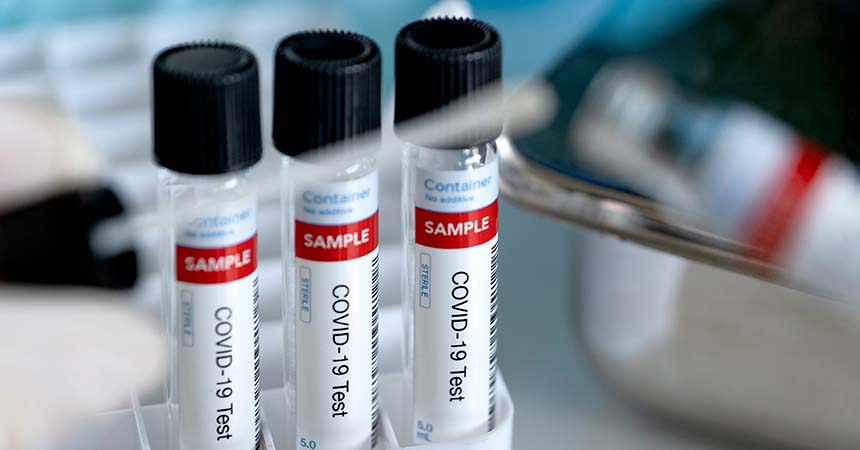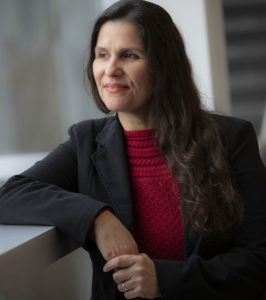What you need to know while awaiting COVID-19 test results
As virus rates continue surging nationwide, a growing number of people are getting tested for COVID-19, and many have important questions on what to do while they await results.
According to Dr. Diana Cervantes, faculty epidemiologist with the HSC School of Public Health, if you feel concerned enough about symptoms or recent exposure to seek coronavirus testing, the safest bet is to self-isolate right away while waiting to hear your results.
“People should stay at home, away from others, for 10 days after the first signs or symptoms of possible COVID-19,” she said.
“If you have no symptoms, but had reasons for getting tested – because you think you may be infected with the virus due to recent exposure, such as being in large groups of people or being in other high-risk situations – you should still isolate as a precaution for that same 10-day period, even if you have not yet heard back on your results.”
If you remain symptom free after 10 days – or if your condition improves after at least 10 days, including at least three days with no fever – you can end self-isolation. It’s not necessary to wait for follow-up from the testing center or your provider in order to do so. At that point, you are no longer considered contagious.
“The growing number of people seeking tests is adding more strain on the systems, resulting in delays,” Dr. Cervantes said. “There are only so many labs available to test for COVID-19 infection, so in some cases, we are seeing a 6- to 7-day wait time for results.”
If you don’t immediately begin self-isolating, Dr. Cervantes said, you could unknowingly infect others while you’re waiting.
“Every day that goes by can be critical,” she said, “as the virus can be passed to others up to two days before having symptoms and up to 10 days after.”
Several factors make COVID-19 testing important, starting first with the patient, and expanding from there to protect others in the community.
Testing identifies whether or not someone has the virus, and helps rule out other possible health conditions that might share some of the same signs, symptoms or concerns.
The results also help health providers outline the best plan for medical care.
Individuals with confirmed, positive results will be advised to quarantine for a full 10 days starting from the day they began experiencing symptoms or, if they have no symptoms, from the day the test was collected.
In addition, guidance will be provided for close relatives living in the same household and others who have been in recent, close contact.
Anyone who tests positive or is even suspected of having the virus should do their best to inform others they came into close contact with up to two days before having symptoms and up to 10 days after. That allows those individuals can to take precautions to keep away from others. Close contact involves anyone who is six feet or closer to you for at least 15 minutes.
The larger public health contact-tracing efforts are also very important.
Contact tracing leads the public health department to others who may also have been exposed.
“That’s why everyone is urged to respond to calls from the health department, to help us learn more about the chain of potential transmission and reach out to others who may have been affected,” Dr. Cervantes said.
“By providing as much information as you can about where you’ve been and the people you’ve come in contact with, you can go a long way in helping prevent further community illness and saving the lives of others.”
In either case, if confirmed positive or awaiting results, your employer will also want to know, to help you with any necessary accommodations.
“It’s especially challenging right now, because we are also in the middle of allergy season, so if you don’t feel well and are unsure about any signs or symptoms, talk to your health provider right away,” Dr. Cervantes said.
The key, as always, she said, is to be vigilant.
“Wearing a mask, practicing good handwashing, maintaining distance from others in public and indoor spaces, and avoiding large groups and situations that you know could be risky, continue to be very important right now, especially as the virus rates remain high,” she said.
Likewise, it’s an important time to also look out for others.
“If you’ve recently traveled, been around a lot of people or have been in other types of high-risk situations – or if you just don’t feel well but you’re not yet sure why – it’s not the time to go visit your grandma,” Dr. Cervantes said. “Be safe … and help others stay safe, too.”





![Uyen Sa Nguyen Scaled[58]](https://www.unthsc.edu/newsroom/wp-content/uploads/sites/16/Uyen-Sa-Nguyen-scaled58-145x175.jpg)

Social media